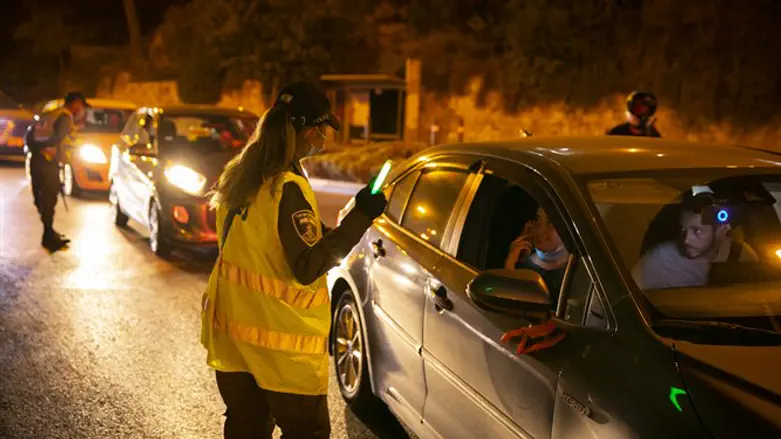
On Sunday afternoon, the government’s coronavirus cabinet met to discuss future measures for bringing down the rate of infection of the coronavirus. Ministers prepared to discuss proposals either to impose stricter regulations, or to ease restrictions, or a combination of the two. One particularly contentious proposal has been suggested by the Health Ministry and the Prime Minister – that of imposing a nightly nationwide curfew.
According to a report in Behadrey Haredim, at the start of the meeting, the Prime Minister noted that, “We have to reduce the coefficient of infection, the R-rate, and ensure that it remains below one.” An R-rate of one signifies that each infected person, on average, transmits the virus to one other. If the rate is below one, the number of those infected will continuously drop.
At this stage, it appears unlikely that the night curfew will be imposed, due to the opposition to the plan of a large number of ministers from the Blue & White party who are members of the coronavirus cabinet, as well as the police and the newly installed coronavirus project manager, Prof. Nachman Ash.
The proposal put before the cabinet involves forcing businesses to close by seven o’clock each evening, and forbidding citizens to leave their homes from eight o’clock each evening until five o’clock the next morning.
Speaking at the meeting, Prof. Ash explained his opposition to the proposal: “We shouldn’t be using a night curfew as a means of allowing more sectors of the economy to open during the daytime. It’s impossible to judge how effective a night curfew will be.”
Police representatives at the cabinet meeting also noted their issues with the idea of a nationwide curfew, stating that in their opinion, it would be impossible to enforce in all parts of the country at once. They presented data showing that such a project has almost never been attempted in the history of the State of Israel, except more limited projects such as in the Arab sector during Ramadan, and during the first nationwide lockdown on the first day of Passover and on Independence Day.
It was also pointed out to the ministers that imposing a nationwide curfew would necessitate clearly defining what would constitute essential travel that would be permitted during the nighttime hours, in order that the general public should appreciate the fact that only in exceptional cases could the curfew be breached.
Police representatives also expressed their concern that various sectors of the population, such as the Arab and haredi sectors, would hold weddings in the afternoon instead of the evening, in order to circumvent the law. “These populations have been under severe restrictions for so long that they are liable to seek loopholes. They may decide to hold weddings in the afternoon, and groups of people, such as youth, may begin congregating in private homes, air-raid shelters, and other such inconspicuous places.”
Police concluded that the impossibility of enforcing the curfew would result in a public perception that it was indeed not being enforced, and compliance would gradually decrease until eventually, large segments of the population would simply ignore the regulations.
